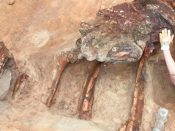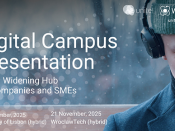Por Marc Wittmann (Institute for Frontier Areas of Psychology and Mental Health, Freiburg).
Empirical findings suggest that physiological changes of the body, the basis of our feeling states, form an internal signal to encode the duration of external events and the feeling of time passage in the range of seconds. On a basic level the bodily self is the functional anchor of phenomenal experience - and of subjective time. Neuroimaging studies have shown that neural activity in the insular cortex is related to the processing of temporal intervals in the multiple-seconds range. The entanglement of self-reflective consciousness, emotion and body awareness with the experience of time is prominently disclosed in altered states of consciousness such as in experiences of flow and of boredom, in meditative states, in floatation-REST, under the influence of psychedelics, as well as in many psychiatric and neurological conditions. In such altered states of consciousness peak experiences can occur which later are described as culminating in the oceanic feeling of ‘selflessness’ and ‘timelessness’. This body of work on the intricate relationship between the self and time will be discussed for an understanding of everyday time experience as well as of altered states of consciousness.
Bio: Marc Wittmann studied Psychology and Philosophy at the University of Fribourg, Switzerland, and the University of Munich, Germany. He received his Ph.D. and his habilitation at the Institute of Medical Psychology, Medical School, University of Munich. Between he was Research Fellow at the Department of Psychiatry at the University of California San Diego. He is currently employed at the Institute for Frontier Areas of Psychology and Mental Health, Freiburg, Germany. He is author of the books Felt Time (2016) and Altered States of Consciousness (2018), both published by MIT Press.
Transmissão via Zoom.



















